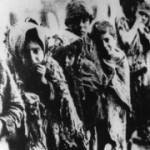 MOSUL,— Iraqi special forces stormed the Mosul University complex in the city’s northeast on Friday and pushed Islamic State further back to reach another bridge across the Tigris river, the military said.
MOSUL,— Iraqi special forces stormed the Mosul University complex in the city’s northeast on Friday and pushed Islamic State further back to reach another bridge across the Tigris river, the military said.
The militants were fighting back at the university, which they had seized when they took over the city in 2014. A Reuters reporter witnessed heavy clashes inside the campus.
Iraqi forces have recaptured most districts in eastern Mosul in nearly three months of a U.S.-backed offensive, which accelerated at the turn of the year with new tactics and better coordination.
They aim to take full control of the eastern bank of the Tigris river, which bisects Mosul from north to south, before launching attacks on the west, still fully in Islamic State hands.
Driving the ultra-hardline Islamist group out of its Mosul stronghold will probably spell the end for the Iraqi side of the caliphate it has declared, stretching into Syria.
Senior Iraqi Counter Terrorism Service (CTS) commander Sami al-Aridhi said the university was the most important Islamic State base in the eastern half of the city.
BULLDOZERS
He said the CTS had taken over a hill overlooking parts of the campus, including the technical college. “Forces are heading into the depths of the university,” he said.
Earlier, bulldozers had smashed through a wall surrounding the campus and dozens of CTS troops sprinted through carrying rocket-propelled grenade launchers.
An Iraqi officer said army units backed by air strikes had also taken control of Hadba district, north of the university, and would aid the assault on the complex.
Another CTS commander said the capture of the university would enable further advances as it overlooks areas closer to the river.
Advances by Iraqi forces have gathered pace in the last two weeks after troops got bogged down in fierce street fighting in late November and December and militants hid among the civilian population.
New tactics employed since the turn of the year, including a night raid and better defences against suicide car bombs, have given the campaign fresh momentum, U.S. and Iraqi military officials say.
Better coordination between different military divisions, such as the elite CTS and the regular army, has also helped, a senior Western diplomat told Reuters this week.
FIVE BRIDGES
“As (Islamic State) are pulled away to fight CTS, that’s the opportunity for the Iraqi army to attack against a much weaker defence,” the diplomat said.
Securing areas along the Tigris would be crucial, the diplomat added.
“Once you get to the river, you can then slowly mop it up, because you can then cut the lines of communication.”
CTS spokesman Sabah al-Numan told state television: “God willing, within a short period the complete clearing of the left bank of the Tigris will be announced.”
In a separate advance further south in the city, other elite CTS units reached the Second Bridge, also called Freedom Bridge, one of five across the Tigris, the military said in a statement reported by state TV.
Iraqi forces have now reached Mosul’s two southernmost bridges, having battled their way to the Fourth Bridge several days ago.
Assaults on the western half of Mosul are expected to begin once Iraqi forces have secured the east bank.
All the bridges have been hit by U.S. coalition air strikes in an effort to hamper Islamic State’s movements. U.S. and Iraqi military officials say Islamic State has further damaged at least two of them to try to hamper an army advance.
By Isabel Coles and John Davison | Reuters

 The Michigan State University (MSU) has been granted $1.2 million to develop new less commonly taught language courses, included one for Armenian, The State News, published by MSU students, reports.
The Michigan State University (MSU) has been granted $1.2 million to develop new less commonly taught language courses, included one for Armenian, The State News, published by MSU students, reports.
 Islamic State has been using a well-stocked university chemistry lab in Mosul, Iraq, for the past year to concoct a new generation of explosive devices and train militants to make them, according to US and Iraqi military officials and two people familiar with the university, The Wall Street Journal reported.
Islamic State has been using a well-stocked university chemistry lab in Mosul, Iraq, for the past year to concoct a new generation of explosive devices and train militants to make them, according to US and Iraqi military officials and two people familiar with the university, The Wall Street Journal reported. Tufts University, the Darakjian-Jafarian Chair in Armenian History, the Department of History, the Armenian Club at Tufts University, and the National Association for Armenian Studies and Research (NAASR) will sponsor the Commemoration of the Armenian Genocide at Tufts on Wednesday, April 6, 2016, Massis Post reports.
Tufts University, the Darakjian-Jafarian Chair in Armenian History, the Department of History, the Armenian Club at Tufts University, and the National Association for Armenian Studies and Research (NAASR) will sponsor the Commemoration of the Armenian Genocide at Tufts on Wednesday, April 6, 2016, Massis Post reports. Armenian Studies Program, California State University, Fresno.
Armenian Studies Program, California State University, Fresno.
